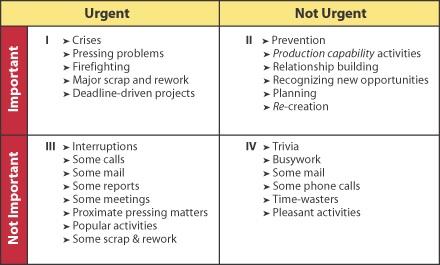Dedication: How to Dedicate Yourself to Your Goals

We’ve all heard the quip that hard work and dedication go hand in hand, or that, in the words of legendary American football player and coach, Vince Lombardi, the price of success is “hard work and dedication to the job at hand.”
Dedication is all of this, and then some. Hard work and dedication leads to a successful life, and dedication and commitment to a desired outcome, a goal you just can’t shake, is what life is all about.
Dedicating yourself to your work is one thing, but what does it mean to dedicate yourself to something so fully that it’s all you think about each and every day? How do you dedicate yourself to your goals to achieve the ultimate success—when you don’t even know where to start?
What Does Dedication Mean?
Dedication is the act of being fully devoted to something, whether this is something intangible, such as a task, goal, or desired outcome, or something that you can feel yourself physically being a part of, such as such as a cause, religion, sports teams, or another person.
While there are many different types of dedication, in this article I’m going to focus on what it means to dedicate yourself to a goal; your true calling, as it were. What is dedication? Dedication is a positive character trait; one that is most likely to lead to your success in life.
Synonyms for Dedication
There are a number of synonyms for hard work and dedication, including commitment, devotion, adherence, allegiance, single-mindedness, purposefulness, and doggedness, to name but a few.
Despite being synonyms for hard work and dedication, these words can’t be swapped out in all instances, and it’s for this reason that I have decided to stick with the word “dedication” throughout this article.
How Hard Work and Dedication Leads to Success
In my article on weathering the storm, I spoke of the late Stephen R. Covey’s classic book The 7 Habits of Highly Effective People, in which Covey implores us to “Begin with the end in mind.” From the first time I read Covey’s book until the present day, this concept has been one of the most practical frameworks for working toward a desired outcome that I have ever come across. In Covey’s own words:
To begin with the end in mind means to start with a clear understanding of your destination. It means to know where you’re going so that you better understand where you are now and so that the steps you take are always in the right direction.
In order to truly dedicate yourself to your goals you must think backward to begin with the end in mind. This level of dedication requires you to look forward and imagine that you have achieved your goals; and from there, you must schedule your most important tasks to make it there, at the expense of all other, less important tasks.
But why is dedication important? Let’s take a look at what this level of dedication looks like.
Reverse-Engineer the Steps to Achieving Your Goals
Instead of starting at the very beginning of the journey toward realizing your goals, start at the finish line. What was the final step you made just before achieving the goal? What was the step before that one, and the step before that one, and the step before...
When you reverse-engineer the steps to achieving your goals, you feel like you’ve finally been put in the driving seat—except the only way to get back to where you are is by reversing all the way home, and putting your foot on the gas when you get there. That brings us to...
Schedule Your Priorities
As Covey artfully notes in his book, “The key is not to prioritize what’s on your schedule, but to schedule your priorities.” Isn’t that a profound thought? Similarly, the founder of Farnam Street, Shane Parrish, recently noted, “Don’t tell me your priorities. Show me your calendar.”
When you schedule your priorities there is no way for them to slip through the cracks. You may have the best of intentions to work on your goals during the upcoming week, but we both know that if you don’t carve out the time in which to do just that, it’s unlikely to happen.
Focus Only on Important, Non-Urgent Tasks
While scheduling your priorities is one way to dedicate yourself to achieving success, it’s just as important to make sure that you’re dedicating your time to working on the most essential parts of your goals at any given time.

The above graph is the Time-Management Matrix from The 7 Habits of Highly Effective People. In the matrix, Covey shows that the only way to have forward-momentum in your goals is to dedicate yourself to Quadrant II: Important, Non-Urgent tasks. In Covey’s own words:
The only way to make Quadrant I manageable is to give considerable attention to Quadrant II, primarily by working on prevention and opportunity and by having the courage to say no to Quadrants III and IV.
If your goal is to become better in a discipline, such as at a specific sport, musical instrument, or skill such as writing or coding, the act of deliberate practice would fit firmly into Quadrant II. Applying hard work and dedication to Quadrant II tasks will pay off tenfold in the long term.
Hard work and dedication is one of the most powerful forces we possess to shape our lives and realize our goals. How are you dedicating yourself to your goals?
If you’re interested in hearing more from me, be sure to subscribe to my free email newsletter, and if you enjoyed this article, please share it on social media, link to it from your website, or bookmark it so you can come back to it often. ∎


